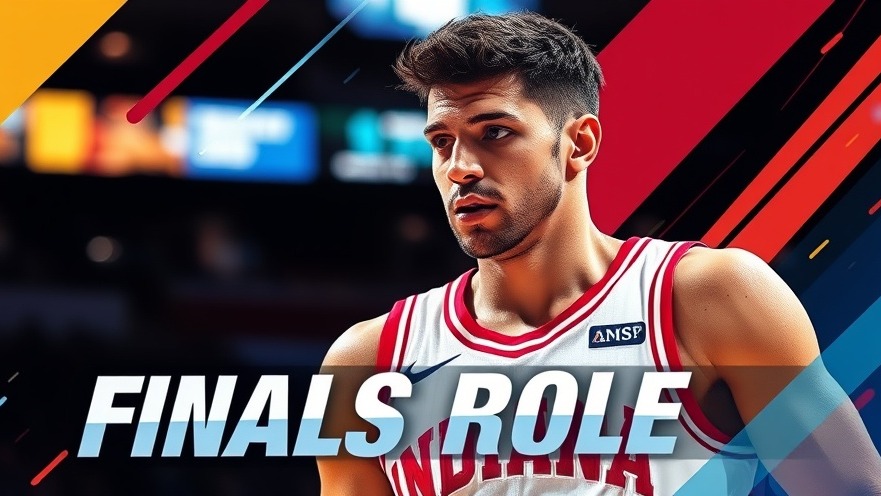
Unpacking LeBron's Late-Game Decisions
In a recent game that showcased the high stakes of the NBA playoffs, LeBron James found himself in a challenging position. As he faced the eight-second inbound clock, he sought a teammate to break open, feeling the pressure mount with time ticking away. James reflected, "If I could take it back... maybe just have one guy break open to the back court." This statement highlights not only his leadership qualities but the strategic thinking that has defined his career. In high-pressure situations, communication and teamwork are integral to success, and James's insights can serve as a learning opportunity for teams across all levels, including college basketball and NFL plays.
In LeBron on his late-game turnover and foul on Anthony Edwards, the discussion dives into critical decision-making in basketball, exploring key insights that sparked deeper analysis on our end.
Why LeBron's Call Is a Common Play
Discussing his late-game foul on Anthony Edwards, LeBron stated, "I felt like the hand was a part of that ball." His perspective reveals a player’s knowledge of the game mechanics and rules—particularly the often-debated notion that the player's hand is an extension of the ball. Such calls can shift the momentum of a game and have led to contentious discussions among fans and analysts. LeBron’s experience adds weight to this ongoing debate, reminding us that referee calls are not merely about the rules but can also impact the game’s dynamics, affecting outcomes critical for playoff standings.
The Broader Implications of Leadership in Games
LeBron James is more than just a player; he's a leader and a strategist. His late-game choices resonate far beyond basketball; they illustrate the importance of decision-making under pressure. Just like in NFL dramas when quarterback choices are scrutinized, or during March Madness when college teams face pivotal moments, LeBron’s insights underscore an essential element of sports: the psychology of leadership. In high-stakes environments, leaders can either elevate their team or falter. Observing LeBron's actions and choices provides invaluable lessons not only for aspiring athletes but for anyone in a leadership role.
Reactions from Fans and Analysts: A Cultural Dissection
The fallout from LeBron's turnover and subsequent foul didn't just stay on the court; it ignited conversations among fans and analysts about accountability and expectations of superstars. Social media erupted with takes, as some supported LeBron while others pointed out mistakes highlighting a broader cultural aspect of sports fandom—where every play can lead to examination and expectation. This scrutiny extends beyond just a game, reflecting the pressures public figures face, especially in sports where success is often equated with championships.
What This Means Moving Forward
As we look toward the NBA playoffs and upcoming seasons, LeBron’s experiences are harbingers of what young players can expect in high-pressure scenarios. The analysis of these moments serves as fodder for those following the NBA MVP race and future NBA highlights. Coaches at every level can draw upon the chess game that LeBron has played throughout his career—strategically, step by step, ensuring his team has the best chance at victory. To continue following all these exciting developments, one might keep an eye on NBA trade rumors and how they may affect team rosters.
Final Thoughts: More Than Just a Game
LeBron James’s insights on leadership, decision-making, and the pressure of high-stakes game situations resonate far beyond the basketball court. They encourage all of us—young athletes, fans, and leaders alike—to reflect on our roles in moments of tension. Next time you’re glued to the NBA playoffs or catching up on college basketball news, remember that sports are not just about the game itself, but about the lessons they impart.
 Add Element
Add Element  Add Row
Add Row 



 Add Row
Add Row  Add
Add 


Write A Comment